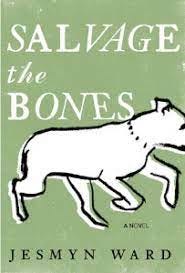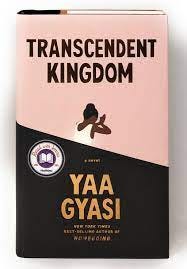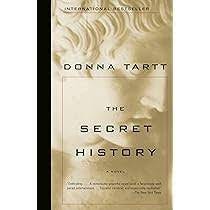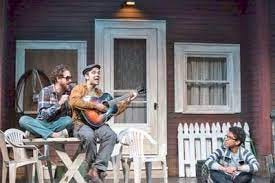By the end of this year, I will have read over seventy books, which for me is a record-best. (If you’re one of those people who reads like two hundred books a year, you’re not welcome here. Also, how do you do it?). It turns out, there is no better development for your reading life than spending a good quarter of your year working in an indie movie theater in your hometown. I spent most of the late winter and early spring sitting in a stool behind the concessions counter, book in hand. And that was great for me, because when I am most unsure of where I am going (and boy, was I unsure this year), books are the best salve I can think of.
This year was the year I realized that things are popular for a reason. Not Colleen Hoover books. But the stuff that winds up on actual “Best of” lists. The stuff your friends gasp at you for not having read yet. I read my first Didion this year, and she is as cool and perceptive as everyone says she is. I read The Bell Jar (holds up!). I read The Secret History (a great book for anyone who went to a weird college in the woods). I think a big part of growing up is realizing it’s okay not to be special. It’s okay to like the stuff that everybody else likes. In fact, it’s kind of great, because you feel understood, and have other people to talk about it with.
Anyway, without further ado and in chronological reading order, my favorite books I read this year:
Salvage the Bones by Jesmyn Ward
I have been in love with the stretch of coast that borders the Gulf of Mexico since I was a child. I spent summers in the back of my family’s Honda, watching the landscape blur through the car window. I love the old magic of New Orleans and the strange woods of Mississippi, the rickety buildings of Alabama and the soft, beige beaches of Florida. Ward captures that part of America so perfectly here. The story takes place directly before, during and after Hurricane Katrina, and so it feels like a love letter and an elegy all at once. Ward’s writing is rhythmic and lyrical, but what really stuck with me were the characters. Especially Esch. The book’s protagonist is a singular sister amongst brothers, a member of the tribe of motherless daughters, so, of course, I felt an immediate kinship. Her strength, her desire to be loved and her desire to survive have all stuck with me, and I think I owe Salvage the Bones for setting a perfect tone for my reading year.
Moments of Being, Virginia Woolf
Most people (myself included) know Virginia Woolf for her fiction. And while I am as big a fan of Mrs. Dalloway or To the Lighthouse as any other pretentious former English major (my roommates and I have a picture of her hanging above our kitchen table), I was a bit surprised to find I loved her non-fiction just as much. In this book of personal essays collected after her death, Woolf brilliantly brings the characters and scenes of her childhood to life: her idiosyncratic group of friends, the beaches of her summer home in St. Ives, her troubled father. She writes with rich insight, and stunning honesty. I was most moved by the way she discusses the death of her mother and the grief that accompanied it (are we sensing a theme here?). She describes her mother’s death as simply “the greatest disaster that could happen”, and I would be hard pressed to find a more direct, unfettered depiction of grief in any other book.
Night Sky with Exit Wounds, Ocean Vuong
This is one of those books I might’ve gotten to earlier, if I were a better listener. Ocean Vuong really is as talented as everyone says he is, and I apologize to anyone who has been recommending this to me for the last few years. I enjoy poetry that requires rereadings, but isn’t so opaque that the larger meaning evades me on a first read. Vuong certainly fits into that category. These poems are full of ghosts: the ghosts of faceless men, of Vietnamese refugees in Vuong’s mother’s stories, and the ghost of Vuong’s own father. Vuong experiments with perspective, writing from an historical, bird’s-eye-view and then shifting—within a few pages—to a viscerally personal narrative. I loved the way themes and motifs carried throughout (the color white, for example, recurs), creating a sense of cohesion in the collection, and I cannot wait to pick up his newer book Time is a Mother.
Transcendent Kingdom, Yaa Gyasi
This book has to be in competition with Salvage the Bones for my favorite of the year. Gyasi’s prose is what I aspire to as a writer—at once concise and poetic. The novel follows Gifty, an addiction researcher who is dealing with her own grief and religious questioning (genuinely two of my favorite topics). The narrative moves quietly, shifting between Gifty’s upbringing as an immigrant in the South (another theme in my reading, perhaps) and her reinvention as a scientist. It is the sort of story that asks more questions than it answers, and it will leave you thinking about God and grief and addiction for far longer than its brief 264 pages.
Too Much and Not the Mood: Essays, Durga Chew-Bose
Durga Chew-Bose’s writing is electric. She feels like the coolest older sister you could imagine—if that older sister wrote like Maggie Nelson. She opens this book of essays with what is essentially a tour of her heart, weaving together memory and insight, meandering through the annals of her own being, before arriving at a brilliant, moving conclusion. And it only gets better from there! Her essays touch on identity, friendship and (here it is again) her experience as the daughter of immigrants. To me, the best books make you feel like the writer has shrunk down and taken a tour of your own brain, has rifled through your diary and recorded your dreams. Too Much and Not the Mood certainly felt that way, and never have I been so happy to suspect someone was living in my walls.
The Secret History, Donna Tartt
Yes, I’m a walking liberal arts stereotype, but The Secret History really is worth all the praise it gets. Donna Tartt creates a sense of atmosphere that envelopes you. Everything feels vivid and all-consuming: from the woods surrounding Hampden College to the awkward parties Richard attends to the eccentric group of friends he finds himself wrapped up in. What most struck me about the novel, though, was its depiction of wealthy academia. My own college was a place so isolated and so wealthy that it felt without consequences. A friend of mine used to call it “Disneyworld.” This, I think, is what Donna Tartt captures best. Of course, Richard and his friends take it to new and depraved levels, but Tartt manages to keep a tether to reality, cleverly critiquing privilege without ever sacrificing the tension of the story. The book reads like a modern classic, full of enough lush imagery and tiny details to fuel a semester-long analysis.
The Bell Jar, Sylvia Plath
Am I really recommending The Bell Jar? Feels a little silly, I’ll admit. But, have you read The Bell Jar? When was the last time you read The Bell Jar? This year was—shockingly—the first time I ever picked it up. In fact, my roommate Milo had to insist I borrow his copy. And, I’m so glad he did. I read it in August, the final month of my own “queer, sultry summer” in New York, and I found it surprisingly relevant for a book written over sixty years ago. Plath captures the fears and anxieties of a burgeoning adulthood so perfectly (yes, the fig tree passage got me). Esther is at once suffocated by all of her possible futures, and paralyzed by her growing apathy. She also feels trapped by the expectations of womanhood—her proposed future as a wife and mother. I felt deeply understood and terribly sympathetic, and I finished the novel wishing only that Plath might’ve seen a more convincing future for herself.
Lost & Found: A Memoir, Kathryn Schulz
Kathryn Schulz is an award-winning journalist, and it shows. Her memoir, which centers around both the loss of her beloved father (grief again!) and the beginnings of her love story with her wife, is equal parts scholarly and poetic. Divided into three parts (“Lost,” “Found,” and “And”), it explores the concepts of grief, love and the mingling of the two. Schulz is an incredible writer, interweaving references to Romantic poetry and early psychology with anecdotes about her father’s absent-mindedness and her proposal to her wife. Somehow, there was a passage about the etymology of the word “and” that had me crying! It’s an amazing book to pick up if you—like me—often find yourself wondering how the world can be so beautiful and so terrible at once.
Normal People, Sally Rooney
Normal People is one of those books that elicits strong reactions from everyone. I have heard people absolutely tear into it as pseudo-intellectual bullshit about miserably unlikable characters, and others praise it for how deeply it affected them. I fall into the second camp, and I really hope you’ll trust me enough to give it a try if you haven’t already read it. Rooney’s writing is gorgeous without being flashy—I found myself going back to underline lines that had almost slipped past me in their understated brilliance. More than that, however, Rooney is a shrewd observer of the human psyche. The book flips between the perspectives of Connell and Marianne, and I found their thoughts and feelings, doubts and misunderstandings, to be deeply believable. It made me reflect on my own life, and all of the situations I have misinterpreted because of my own insecurity and anxiety. And that ending! It might have my favorite few closing lines I’ve read all year.
The Vermont Plays, Annie Baker
Annie Baker is the patron saint of burnouts and losers. Each play in this collection centers around the kind of people you might find hanging around your local 7/11 late at night, or working at the Walmart down the street. And yet—despite writing with wry humor and canny observation—Baker never treats them with scorn or condescension. Instead, she sees them as worthy of redemption, of revelation—which is a lovely thing to read, when you yourself are feeling like a bit of a burnout, hopelessly wandering around your own life. My favorites were The Aliens (of course) and Nocturama, but all of the collection is worth a read.
Honorable Mentions: Writers and Lovers by Lily King, The Hurting Kind by Ada Limon, The White Album by Joan Didion, The Interestings by Meg Wolitzer, Wolf in White Van by John Darnielle, Funny Weather by Olivia Laing, Everything I Know About Love by Dolly Alderton, and Evicted by Matthew Desmond
If you’re still reading this, I really appreciate you. Thanks for letting me wax poetic about my favorite books of the year. I promise I’ll be back to my regularly scheduled content next week.
Also, add me on Goodreads.
Cheers to the ever-approaching New Year,
Jade





